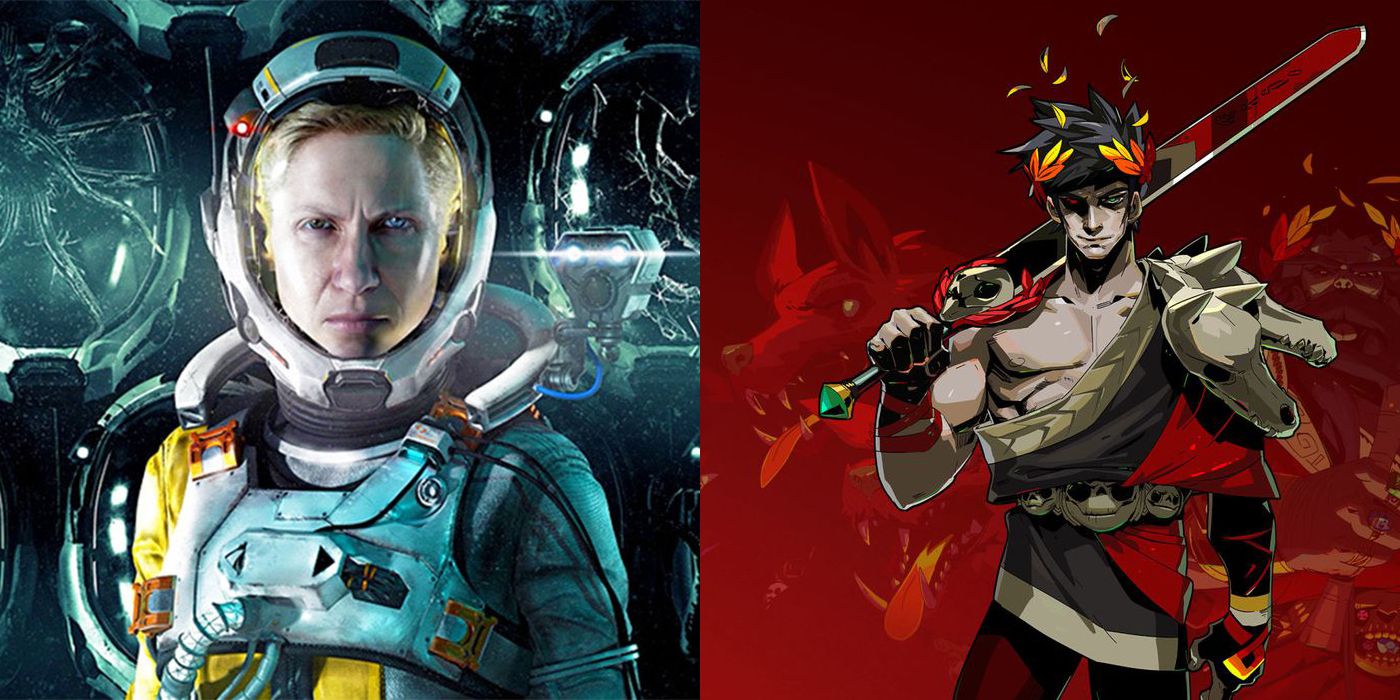Lessons for Future Roguelikes from Returnal and Hades | Game Rant

Roguelikes have had a very good run as of late. Even before the launch of Supergiant Games' revolutionary Hades, talented indie developers were producing a steady stream of fun, "Fight. Upgrade. Die. Repeat," titles. And now Housemarque's Returnal demonstrates what the genre can achieve when it is approached from the opposite end of the development spectrum, backed by a bigger budget and the bleeding edge tech of a fresh console launch. Even though it is tempting to pit Hades against Returnal in terms of over all quality and appeal, the tired "which is the better title?" question, more interesting lines of inquiry are: "What unique things do these titles bring to the table?" and "What important qualities do they share?"
While both games share several features in common—like the near-identical currency system—they have very different lessons for developers working on future titles in the same space, that are equally valuable. Hades' peerless accessibility options open up an imposing genre to a broad audience. Returnal proves that roguelikes can go bigger in terms of both immersion and production without losing the genre-defining focus on improvisational character builds and compelling, challenging combat. More importantly though, both games prove that compelling, iterative narrative breathes life into a genre that would otherwise be arcadey and monotonous.
One could argue that the roguelike market is already saturated, and that the genre has been reduced to a tired fad. But Hades and Returnal will not necessarily inspire more roguelikes. In fact, they may deter developers from producing derivative titles by raising the bar for roguelikes as a whole. Newcomers weened on Hades' God Mode will demand access to future titles in the genre. PS5 early adopters will compare future games to Returnal's haunting immersion. This stiff competition demands innovation rather than bandwagon development.

Roguelikes, like Soulslikes, are a genre of videogame that demand mastery. Dying is not merely inevitable, but a core feature of the experience. For some players, that challenge holds inherent appeal. It feels good to master enemy movement patterns and boss attack cycles. But to many other gamers, burning countless hours to obtain the necessary degree of mastery becomes a deterrent to reaching the end of a truly compelling story (more on that later). Hades makes a powerful case for more soulslikes and roguelikes having an Easy Mode, by giving players benefits that scale with their struggles to complete the game.
Attaining skill is not the only way roguelikes act as time sinks however. Most entries in the genre demand a considerable time commitment from players, as few titles allow players to pause their progression mid-cycle. Again, skilled Hades players can shave their total time beneath the 15 minute mark, but for those starting out, a complete trek through the realm of the dead can take over a half-hour. Other games in the genre can take even longer. But Hades respects players' time by allowing them to pause a run after completing any chamber. If something comes up mid-run—an urgent phone call, family emergency, or other obligation—the players' progress to that point is preserved.
Relaxing the genre's signature, brutal difficulty may considered blasphemy by some, but it also opens up a compelling style of gameplay to an entirely new audience. Improving accessibility is one of the most consumer-friendly moves a developer can make, and ultimately leads to innovation in that space. Today's gamers are tomorrows developers. People being put off by titles that would otherwise be inspiring is ultimately a loss for everyone. And, brilliant features aside, there are ways Hades could refine its already-stellar formula. This task will likely fall to another developer as well, since Supergiant has a track record of avoiding direct sequels.

Housemarque's sci-fi roguelike, Returnal, is not as welcoming or accommodating as Hades but it brings its own valuable contributions to the genre by powerfully leveraging the potential of its platform. The DualSense controller's finely tuned vibration system allows the game to simulate the steady but arrhythmic impact of rainfall. The game's crisp combat system also makes full use of the controller's adaptive haptic triggers—and one gets the sense that this is an area where developers are still just scratching the surface. Even the always-somewhat-gimmicky built-in speaker serves a valuable purpose, alerting players to alternate fire recharges. And needless to say, the game's 4K graphics are crisp and gorgeous.
While all those features improve immersion, they could ultimately be considered flourishes and polish. Housemarque's real triumph is the level design of Atropos. Each cycle demands thorough exploration as much as improvisational, bullet-hell combat. While Hades is a strictly linear affair, Selene will need to unlock new pieces of permanent technology—similar to the permanent upgrades obtained in Motion Twin's Metroidvania roguelike, Dead Cells—to progress through levels, and strategically save and backtrack to pickups in order to progress safely. The end result is a game that truly feels like a desperate expedition. Players will establish their own safe zones to return to before venturing deeper into Atropos.
Again, while exploration is sublimely executed in Returnal, there is even more potential for Metroidvania-like exploration. One can easily imagine a future roguelike merging Returnal's expedition-style gameplay to a game with various classes that each possess unique traversal mechanics, or Force Power-like upgrades, as per Star Wars Jedi: Fallen Order.

The biggest drawback to early roguelikes is the creeping sense of a lack of progress. Compelling mechanics are enough to support a game, but the addition of a well-written, intriguing narrative elevates gamers' emotional connection to a title, and the characters within it. Hades slowly introduces the player to new Olympian and Cthonic faces as Zagreus pursues his quest to reunite with his mother Persephone. The game feels like a thrilling new chapter in Greek mythology, with spot-on characterizations of familiar gods, and fun twists on lesser-known deities. Perhaps most spectacular of all is the realization that "beating the game" is equivalent to arriving at the starting line.
Selene's story is also compelling, wearing the influences of stellar sci-fi narratives like Alien, All You Need Is Kill, and Annihilation on its sleeve. In a horrifying, alien environment, one of the most unsettling moments in the game is the first time players encounter something jarringly human and familiar. When Selene is confronted with the phantom farmhouse, players will find themselves wondering whether Selene's mind is playing tricks on her, or Atropos is tailoring itself to her psyche, or something in between.
This sense of meaningful narrative progress sustains players' efforts through the considerable, and potentially repetitious game loops required by roguelikes. And it will be exciting to see what the future holds.
Returnal is available now for the PlayStation 5. Hades is available now on Mac, PC, and Switch.

Post a Comment